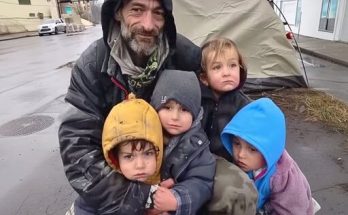Everyone experiences the pain of losing a loved one at least once in their lifetime.
However, we may be more affected than we think by the death of a specific loved one.
Have you ever had a dream about a deceased person, for example? You might not have given their significance in your dreams any thought.
Everyone grieves differently after losing a loved one. Some people cry their eyes out, while others are silent and inward-looking.
Some people make an effort to deny what occurred or behave as if nothing ever occurred. However, a lot of people often use their dreams to commemorate their departed loved ones.
Our subconscious controls the dreams we have at night, therefore if you’ve ever dreamed about a deceased person, it might have some significance.
Can we communicate with the deceased through dreams, then?

People have visitation dreams when they see the deceased, claims Patrick McNamara, associate professor of neurology and psychiatry at Boston University School.
According to McNamara, “dreams of the bereaved where the dead appear to the bereaved in dreams and look to be very much alive,” are frequent.
Under the pseudonym Dream Catcher, the 67-year-old neurologist publishes a lot of articles on the Psychology Today website.
McNamara has written extensively about dreams and how to interpret them. He also claims that visitation dreams frequently have a valid rationale.
They assist the body in overcoming psychological trauma.
He writes about a dream he had following the death of his parents. In addition to having what is referred to be a “visitation dream,” McNamara asserted that it was evidence of life after physical death.
“How much greater must be the belief of someone with a less skeptical approach to dreams than me,” continues McNamara. If I, a person who conducted scientifically-skeptical dream research, could not get rid of the belief that I had just communicated with my deceased parents?

These kinds of dreams have piqued the interest of many people, not only Patrick McNamara, and extensive research has been done to learn more about them.
A study on the effects of grief dreams was published in 2014 in the American Journal of Hospice and Palliative Care.
The study’s findings were as follows: “Dreams of the deceased occur frequently, can be highly meaningful, and further healing from a loss.”
Themes in dreams included “past memories or experiences, the deceased free from illness, memories of the deceased’s illness or time of death, the deceased in the afterlife appearing healthy, comfortable, and at peace, as well as the deceased communicating a message.”
In 2016, after they had just experienced a significant loss, a group of Canadian researchers examined the dreams of 76 middle-aged individuals.
Dreams concerning the departed reportedly increased the belief of 67.1% of persons who had just lost a loved one in the afterlife.
Seventy percent of survey participants reported to see the dead in their dreams, and seventy-one percent said that dreaming about the dead increased their sense of kinship with them.
Jennifer E. Shorter, a psychologist at the Institute of Transpersonal Psychology in Palo Alto, California, has also studied the links between our waking lives and our dreams.
It is impossible to quantify the frequency of visitation dreams, according to the author of “Visitation Dreams in Grieving Individuals: A Phenomenological Investigation into the Connection Between Dreams and the Grieving”.
However, it could occur now or in the future. Her investigation determined that a visitation dream differs from ordinary dreams in four ways:
Even though the deceased look to be exactly as they would have in reality, they are either younger or in better health than they were back then.
The deceased regularly remarks on their current state, such as saying things are going well.
The dream’s message is less tangible and more mental in nature.
Usually, the dream state is one of peace, harmony, and order.
Ever have a dream that you lost a loved one? Please explain what this means.
Please SHARE this article on Facebook if you think dreams can represent something, and feel free to comment with your own insights!






